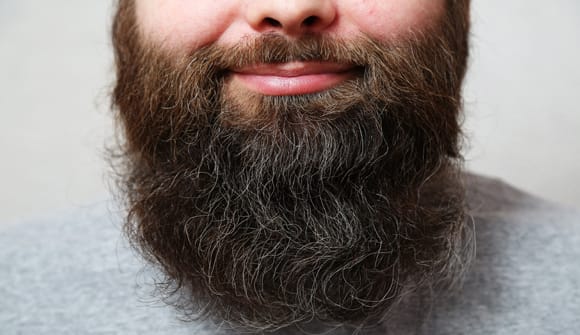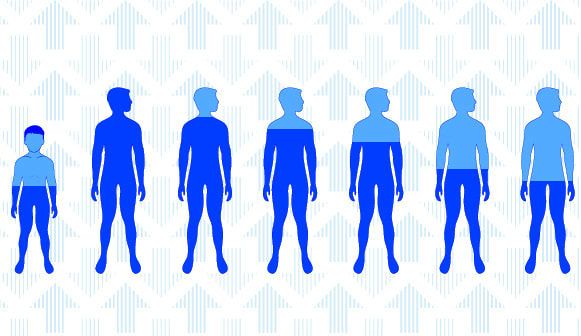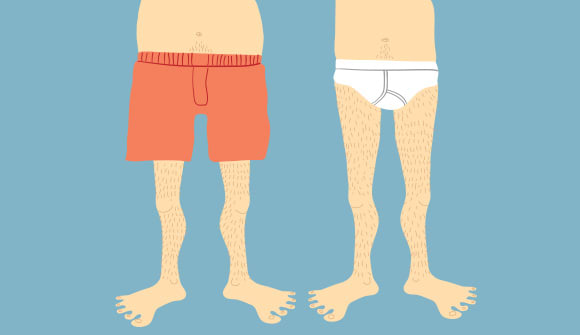Wild whiskers
How facial hair harbors bacteria.
Article Author: Johnny Woodhouse
Article Date:

A well-kept beard is more than just a statement look. Good hygiene can help ward off infections that may be lurking beneath facial hair.
Methicillin-resistant Staphylococcus aureus (MRSA), a type of bacteria that is particularly hard to treat and very resistant to antibiotics, is one of them. About two in 100 people carry it without even knowing.
Bearded men can pick up a MRSA infection in any number of ways, including by shaking someone’s hand and then touching their bewhiskered face.
“They're generally acquired from person-to-person contact or through touching contaminated surfaces,” said Matthew Sheehan, RN, lead Patient Safety and Infection Prevention coordinator at Baptist Medical Center Nassau. “Once the bacteria invade a hair follicle, it can lead to an infection.”
Maintaining a healthy facial forest
Men with beards can experience many skin issues, including ingrown hairs, staph infections, dandruff, dry skin and even lice. Most of these problems can be avoided with consistent good hygiene practices, including:
- Washing facial hair regularly with shampoo
- Using clean, fresh shaving razors and hydrating shaving cream
- Avoiding touching your beard/face when your hands aren’t clean.
- Washing hands frequently
Sheehan said ingrown hair follicles can occur all over the body. Any sensitive, red or swollen area could be the start of a staph infection.
“If an antibiotic regimen is prescribed, it’s important to always finish it, regardless of how well the infection is healing,” he added. “Not completing the prescribed course of antibiotics only weakens the infection temporarily, and it can come back stronger and be harder to eliminate.”
Tame the mane
Beards need to be groomed properly to not become itchy. For a better-behaved beard, it pays to invest in a bristled brush to comb out knots, tangles and split ends, preferably when facial fuzz is still damp, like right after a shower.
A variety of beard-specific products, such as oils, balms and butters can help replenish and hydrate facial hair so it stays soft and easy to style.
Other ways to help beards reach their full potential include:
- Exercise to boost natural testosterone levels
- Diet to help sustain protein
- Sleep to improve hair growth rate
- Stopping smoking to avoid hair loss
Too much stress can also weaken a person’s immune system, leading to less hair growth.
Of course, paying a visit to a dependable beard barber also couldn’t hurt.
The team of physicians at Baptist Infectious Diseases specializes in caring for patients with bacterial, fungal and viral infections that don't respond to standard treatment. To make an appointment with an Infectious Disease specialist, call 904.396.4886



